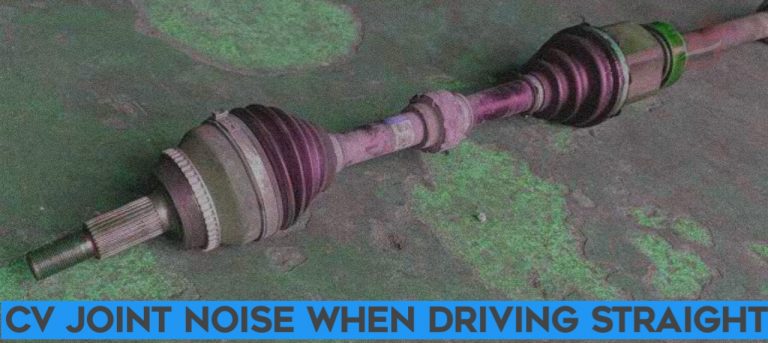The CV Joint is an essential component of your car suspension system that aids in comfortable and smooth driving.
On a front-wheel drive, the CV joint is usually located at the end of the drive shaft. There are two types: ball Joint and tripod joint.
Once a CV joint goes bad, it’ll produce a loud noise whenever you’re driving straight or making turns; this will also cause increased wear out of your front tires.
This article will discuss what it means when you notice CV joint noise when driving straight, its causes, and how to repair it.
CV Joint Noise When Driving Straight – Causes
CV joint noise when driving straight or making turns indicates that your joints are bad or external factors are acting on them. You can read up on the symptoms of a bad CV joint here.
One or more of the below are responsible for noises from your CV joint.
1. Low Lubrication
The CV axle needs sufficient oil to rotate freely; friction will occur between the two components if your CV joint isn’t adequately oiled.
This noise is usually associated with the inner CV joint and occurs due to the contact between the CV axle and joint.
You’ll hear the noise while driving straight, often becoming louder when making sharp turns. The cv noise might not be noticed if you drive at a reduced speed.
2. Bad Boot Clamps
The function of the CV boot clamp is to keep the CV joints in place and covered. If the boot Clamps are weak or damaged, the CV joint will be loose.
This will create an avenue for accumulating dirt and debris in the CV joint, which, if not addressed on time, will mature into a squeaky and noisy joint.
3. Faulty CV Joint Boot
Once the CV boot becomes faulty due to a crack, grease will flow to the CV joint, accumulating over time, leading to wear-outs and damage.
If you see grease on your car’s wheel rim interior surface, check if your CV Boots are still intact.
A faulty CV boot will likely extend its effect to the chassis and the CV axle, which plays an essential role in driving.
This will surely increase the noise coming from your CV joint when driving straight and would increase when making a turn.
4. Worn out/ Aged CV Joint
Using axles for an extended period will cause them to wear out or age, as shown by steering or CV joint noise.
This indicates that the joints are worn out or aged and need immediate replacement.
You can take your car to a mechanic for this procedure.
How To Fix CV Joint Noise When Driving Straight?
While you’ll need to have a thorough understanding of vehicles to implement a DIY fix, it’s advised that you take your car to a professional mechanic.
Depending on the cause of the CV joint noise, here are suggestions for you:
- If noticed on time, a faulty CV joint boot should be replaced with a new one while lubricating the CV joint with quality lubricants.
It’s cheap, and there’s no need to install the whole CV joint.
- A damaged CV joint cannot be repaired, so you’ll usually need to purchase the complete drive train to get a new one.
That’s all.
FAQs
As an Amazon Service LLC Program Associate, V. Auto Basics earns from qualifying purchases. See Our Affiliate disclaimer.
